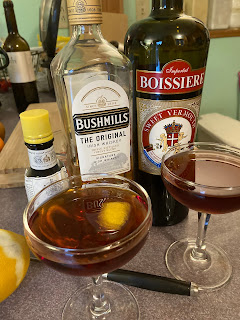Title:
PachinkoAuthor: Min Jin Lee
Pachinko is a multi-generational saga about a Korean family's struggles through the 20th century, mostly in Japan. The history of the Koreans in Japan is not much discussed in the West. Approximately a million Koreans live in Japan, about half of whom are not and have little hope of ever becoming citizens despite having lived in the country their entire lives. Prejudice against Koreans - truly all foreigners but especially Koreans - runs deep in Japan. They've historically lived in their own ghettos and been excluded from most lucrative professions. They tend to have the jobs native Japanese don't want - not unlike immigrant workers in North America and Europe.
As such, the tale of Sunja and her descendants is often discouraging. Her sons eventually make their fortunes running Pachinko parlors. Pachinko - Japan's #1 gambling addiction - is like vertical pinball. The industry, strongly linked to organized crime, is run largely by Koreans which does little to help their reputation. But what can you do when no one else will hire you?
The narrative threads follow various family members over time. The stories are beautifully told as we fall in love with one generation after another. The common theme throughout is shame: shame for deformities, for being poor, for being Korean, for homosexuality, for sexual promiscuity, for unexpected pregnancy and on and on. It's a shame one can easily see as peculiarly Japanese or East Asian but in reality, I don't think it's so different from how we treat people here in the United States. True, we don't cling to the same illusion of homogeneity. But we still aren't especially forgiving of people who are not white, Christian, straight, cis-male, able-bodied, etc. American shame is really no less cruel. Shame can kill.
So while Pachinko is not always a happy book, it's certainly an engaging one. It inspired quite a lot of Japan nostalgia for me, particularly as much of it takes place in Yokohama, the city where I lived, 1996-98 - not too long after Lee's story ends in 1989. One gripe, and it's a common problem with books like this: the main characters are portrayed as virtuous people treated unfairly. What's the problem, you ask? Boorks like Pachinko portray tyranny and oppression on a personal level and darn effectively. But the message too easily becomes "these things shouldn't happen to nice people." True, they shouldn't. But they shouldn't happen to anyone else either.
*****
Forgive me for a self-indulgent segue. Though I suppose that's kind of what a blog is for, isn't it?
*****
The book has come into my life at an interesting time. I'm hitting a big birthday this year - I'll let you guess which one. It's a natural age for looking back over the arc of one's own life story. Japan will always loom large for me. It was my place of birth, though from my current vantage point, that is less significant than those two years in the '90s when I lived there as an adult.
Japan was 25 years ago now, which feels like a noteworthy number, too. I still think about it every day. My Japanese was never great - I hardly needed it in a city like Yokohama - but I'm pretty sure I could still order dinner at a restaurant and get a cab to my apartment with little trouble. I miss politeness. I miss bars where you can comfortably converse with friends. And the trains - oh, how I miss the trains! Public transit in Japan spoiled me for the rest of the world. I loved that feeling of walking into my local station and knowing I could go just about anywhere in the country given the time and the money. And, I'd get there on schedule.
I remember standing on the train platform one night and thinking one day in the future, I wouldn't believe it all really happened to me. While there's a bit of that now, in truth, the experience is a more intense reality than other stages of my past. I remember Japan vividly. I can still feel the tatami mats under my toes and smell the yakisoba at the local noodle shop. If anything, Japan was my great awakening, the grand kickoff to the rest of my adult life. Everything before - college, high school, childhood - that all happened to somebody else. Japan was the real me.
Why? I am a naturally guarded and private person. For whatever reason, I was able to let go of that in Japan. Knowing the time was limited and the opportunity rare, I wrung as much as I could out of life while I was there, soaking in experiences and casting a wide net for friends. Mind you, I was still me and my Japan world was surely shaped by my compulsions and insecurities. But somehow less so. I pushed at the limits more than I ever had before or since and the payoff was grand. The regrets I felt reading Pachinko are the wishes that I'd managed to wring out a bit more - okay, a lot more.
I don't talk about it often. I probably write about it here on The Squid more than I talk about it with anyone in my daily life and that isn't very much. My family all know about it, of course, but even with them, I rarely share specifics. With others, even close friends, I feel self-conscious whenever it comes up. While part of me wants to share, another is protective. I worry it sounds like I'm showing off. It was never about that. I didn't go to Japan to impress people and I've always resented any suggestion that I should brag about it. I went for me, to experience a culture I didn't know, regardless of what's printed on my birth certificate. And I got plenty out of my time in Japan even if it wasn't at all what I expected to get out of it. I lived a lot in two years.
But it's deeply personal - in part for my relationships there, of course. I met amazing people and made extraordinary connections still vital to me despite the separation of oceans and decades. I've also come to appreciate over the years how individual my particular adventure was. My story was different from my parents', 20+ years before. It was different from those of others I've met since who have spent time in Japan, even those who were there on the same program at approximately the same time. I cherish my friends from that time, of course, though their reflections, too, can seem differently tinted from my own - they lived in different cities, taught at different schools. Our divergent paths since have also colored our perspectives of the past.
25 years on, some of the lessons from Japan are more clear than I could have articulated at the time. The most important thing I learned...
Never undervalue happiness because it doesn't come along as often as it should.
Over two years, I built a wonderful life in Japan. I was happy, content in a way I had never been before. I was confident, secure, well-loved, open to others, excited for further adventures. Saying goodbye to people all the time was hard and living far away from family was no picnic. But I was happy. It was a happiness I recognized was rare and building a longer life around it was tempting.
So why didn't I? I won't lie. That question needled at me for years. Mind you, I have a pretty awesome life now, too. But I couldn't have known that at the time. Why not stick with what was working? All of the answers were practical ones. There would have been details to sort out: where to live, how to make a living, visas to renew and so forth. There were personal matters, too. Temporary whirlwind romances, lovely though they might have been, weren't going to cut it in the long run - not for me anyway and likely not for the women involved either.
In short, the longer I stuck around, the more my life would bend towards the ordinary and predictable. As long as I was moving in that direction anyway, I might as well do it closer to home where the particulars were less complicated. Besides, I'm not sure I would ever have wanted Japan to become ordinary.












.jpg)


